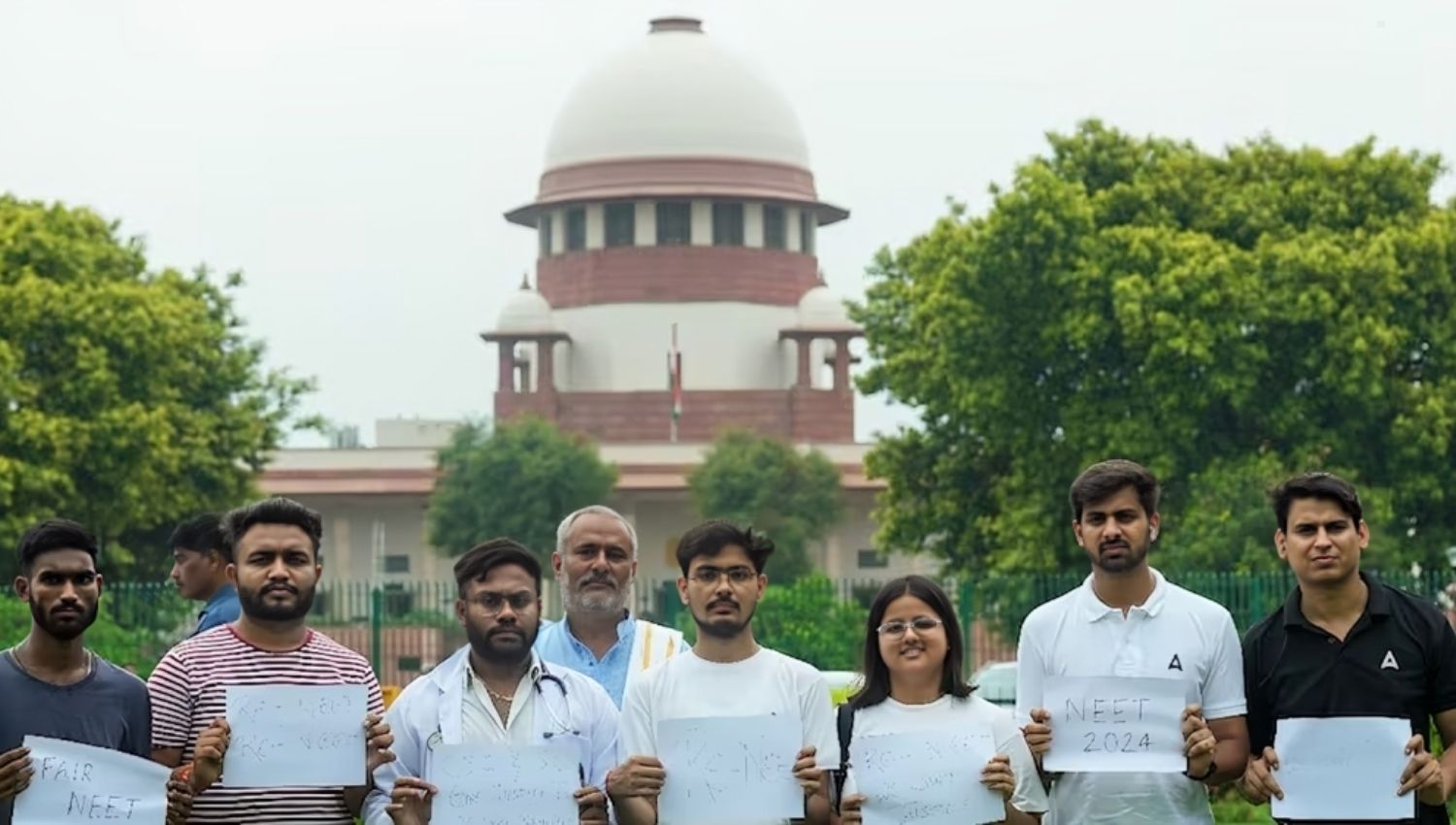On Tuesday, the Supreme Court rejected the plea for a re-conduct of the NEET-UG exam, stating that there was insufficient evidence to prove a widespread leak of the question paper. The court also highlighted the potential negative impact on the 24 lakh students who took the exam if a fresh NEET-UG was to be ordered. Chief Justice of India DY Chandrachud, leading a three-judge bench, presided over the hearing of several petitions seeking a retest of the NEET-UG exam held on May 5, citing concerns of question paper leaks and other irregularities.
Chief Justice Chandrachud delivered the judgment, stating that the court had examined the data provided by the National Testing Agency and a report by IIT Madras, which emphasized that there was no widespread paper leak. “At this point, there is no evidence on record to support the conclusion that the exam results are compromised or that there is a systemic breach of the exam’s integrity,” the Chief Justice remarked. The Chief Justice also mentioned that the court was aware of the potential serious impact of conducting a retest on the students who took the exam.
The court expressed concerns that holding a retest for the current year could disrupt the admission schedule, affect medical education, influence the availability of qualified medical professionals in the future, and put marginalized students at a disadvantage, for whom seats were reserved. The court also confirmed that there was no disagreement regarding the paper leak at Hazaribagh and Patna. The bench referred to the CBI’s report on the paper leak, noting that 155 students at these centers directly benefited from the leaked paper.
The Chief Justice mentioned that the CBI probe is still ongoing and the Union was asked to provide information on potential trends from data collected from 4,750 centers in 571 cities. The government presented an analysis by IIT Madras based on data analytics. The Chief Justice warned that if the CBI investigation uncovers more individuals involved in the paper leak, appropriate action will be taken against them. Regarding the issue of two correct options in a NEET question, the Chief Justice referred to the IIT Delhi report which confirmed that option 4 was the correct answer. He instructed the NTA to adjust the results accordingly. Furthermore, he stated that if the petitioners disagree with the court’s decision, they have the right to seek legal recourse.


Leave a Reply